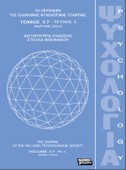Effects of classroom learning experiences and examination type on students’ learning

Abstract
The study explores the effect of in-class experience and open and closed-book examinations on understanding. In-depth interviews were conducted with twenty final year psychology students. They were asked about their study strategies to develop understanding when revising for open-book and closed-book essay-type examinations, and also
about their in-class experiences. The findings indicate the effect of in-class experience, as a both cognitive and emotional experience, on approaches to studying and of students’ attitudes to the differing forms of examination. Positive and negative effects of lectures on students’ learning appeared related to alignment and misalignment, respectively, between teaching, learning and assessment. Tutor’s authoritarianism was pointed out by students who appeared to be strategically shifting approaches according to the type of the exams, and this led to elements of a surface approach. While the majority of the students maintained the
same broad approach across different types of examination, there were marked differences in how that approach was enacted, depending on the examination requirements. Students appeared to make broader
connections within the deep approach in relation to the open-book examinations (holistic approach) and showed fewer connections and more fragmentation for the closed-book examinations (atomistic approach). The findings are discussed in relation to recent literature.
Article Details
- How to Cite
-
Karagiannopoulou, E. (2020). Effects of classroom learning experiences and examination type on students’ learning. Psychology: The Journal of the Hellenic Psychological Society, 17(4), 325–342. https://doi.org/10.12681/psy_hps.23771
- Issue
- Vol. 17 No. 4 (2010)
- Section
- SPECIAL SECTION

This work is licensed under a Creative Commons Attribution-ShareAlike 4.0 International License.
The journal PSYCHOLOGY adopts a Platinum open-access policy. Submission, processing or publication costs are waived by the Hellenic Psychological Society. Papers published in the journal PSYCHOLOGY are licensed under a 'Creative Commons Attribution-ShareAlike 4.0 International' licence. The authors reserve the copyright of their work and grant the journal the right of its first publication. Third-party licensees are allowed to use the published paper immediately after publication as they wish, provided they retain the defined by the license copyright formalities, regarding the reference to its author(s) and its initial publication in the journal PSYCHOLOGY. Moreover, any adjusted work should be shared under the same reuse rights, so with the same CC license.


